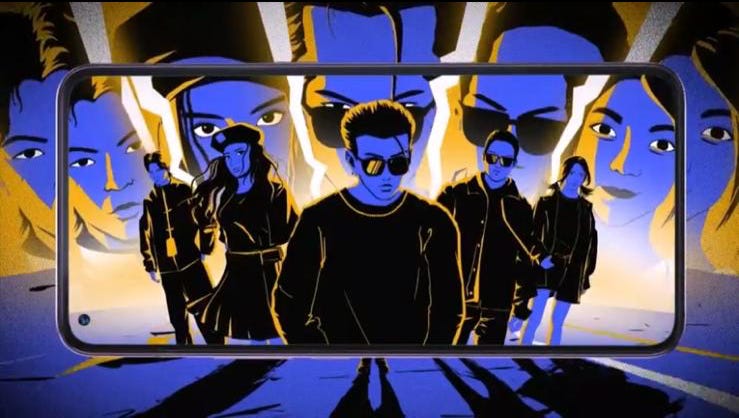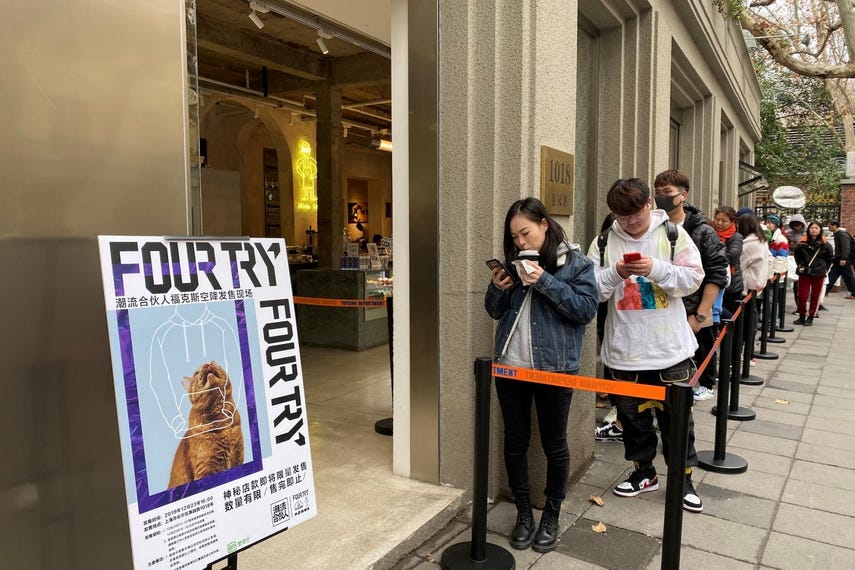In my ongoing quest to better understand Chinese pop culture, I made the decision to watch this show called Fourtry.

Fourtry is a Chinese reality TV Show where a group of five celebrities go to Japan and try opening up a successful fashion boutique in the middle of Tokyo.
Fourtry was created by iQiyi, a Chinese video streaming platform with over 500 Million monthly active users, one of the many ‘Netflixes of China.’ The first episode became the number one trending reality show on Chinese platform Weibo, reaching 19.8 million viewers.
The celebrities in the show are some of the biggest in China:
Kris Wu is a Canadian-Chinese pop idol with 49 Million followers on Weibo. He got his start as part of the K-pop band EXO and has gone on to become a major film star, singer, and model for fashion brands like Burberry.
Angelababy is a Chinese model, actress, and entrepreneur with over 100 Million followers on Weibo. She has recently starred in Hollywood films like Independence Day: Resurgence and also set up her own venture capital fund AB Capital.
Rounding out the five main characters is singer Wilber Pan, actress Jinmai Zhao, and rapper Fox.

The show explores their trials and tribulations with selling clothes in the trendiest part of Tokyo. Kris Wu was also the host of the super famous show Rap of China and is sometimes referred to as “China’s King of Streetwear.” Fourtry attempts to capitalise on the emerging Chinese street culture trend.
Compared to Western reality TV shows, I noticed a few differences in Fourtry.
Editing
The editing was out of this world. Special effects, while crude, were heavily emphasised in almost every situation to accentuate the emotions felt by each cast member in that particular moment.


Product Placement
The show was sponsored by Vivo, along with other major brands like Pepsi, Mazda, and Ikea. The Vivo product placement was incredibly blatant in certain scenes and a Vivo logo would frequently appear in the bottom right hand corner of the video.

Sometimes the camera would awkwardly pan to a sponsor’s product shot without much relation to the conversations between the cast.

I thought this explicit acknowledgement of sponsors actually made things feel more natural. Rather than hiding the sponsorship, it was front and center.
Another show I’ve watched recently is J-Style Trip on Netflix. It’s a reality TV series with a similar format. Taiwanese pop star Jay Chou travels around different cities around the globe with a group of friends and their adventures are recorded on camera. While the sponsorship seemed less blatant compared to Fourtry, the editing was similarly wild and vivid.
I’m beginning to think this over-the-top editing in media is a Chinese characteristic that is also reflected in the design of mobile apps.
Compared to the UX of Western mobile apps, Chinese mobile apps are a lot busier. To Western eyes, Chinese apps might look crowded and confusing.
Here’s an example of bullet comments, a common way for people to leave comments on video platforms such as Bilibili.

Admittedly, this is an extreme example above, but bullet comments are used very often across several apps. These features might be overwhelming to Westerners, much like how Fourtry’s editing seemed crazy to me.
Why does Fourtry exist? Because the creators of the show recognised the opportunity to capitalise on a recent Chinese consumer trend of street fashion, especially among younger audiences.
iQiyi collaborated with dozens of fashion brands to allow people to buy the specific clothes they saw in the show directly on e-commerce channels. iQiyi also hosted a Fourtry Popup in Shanghai. So iQiyi made money not only by advertising on the show, but also by selling products after the show.

As much as some people might consider reality TV a lowbrow genre, it’s one of the truest reflections of our popular culture. Fourtry, as with all popular Chinese media, can tell us a lot about culture and consumer preferences.
I’m not yet an expert, but I have to admit that Chinese reality TV is quickly become my guilty pleasure to watch at night. Depending on how deep I go down this rabbit hole, I can always shift careers to become a reviewer of Chinese TV shows.
This Week’s Most Popular Update:














Share this post